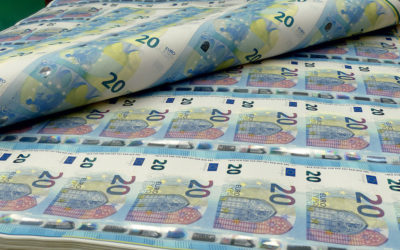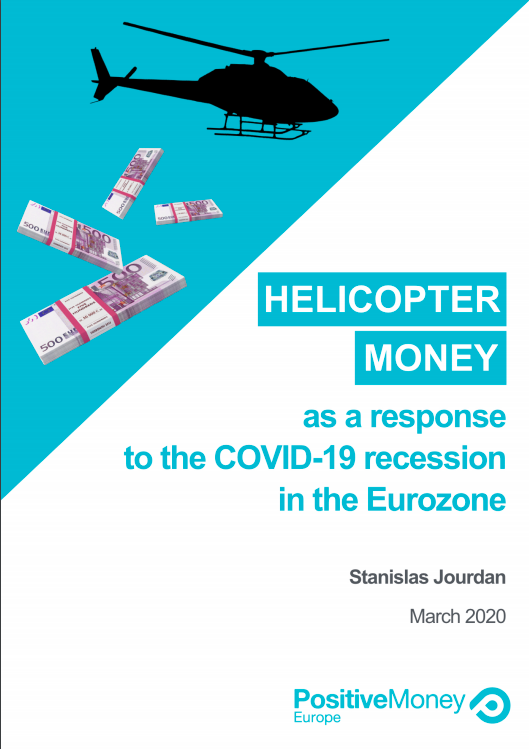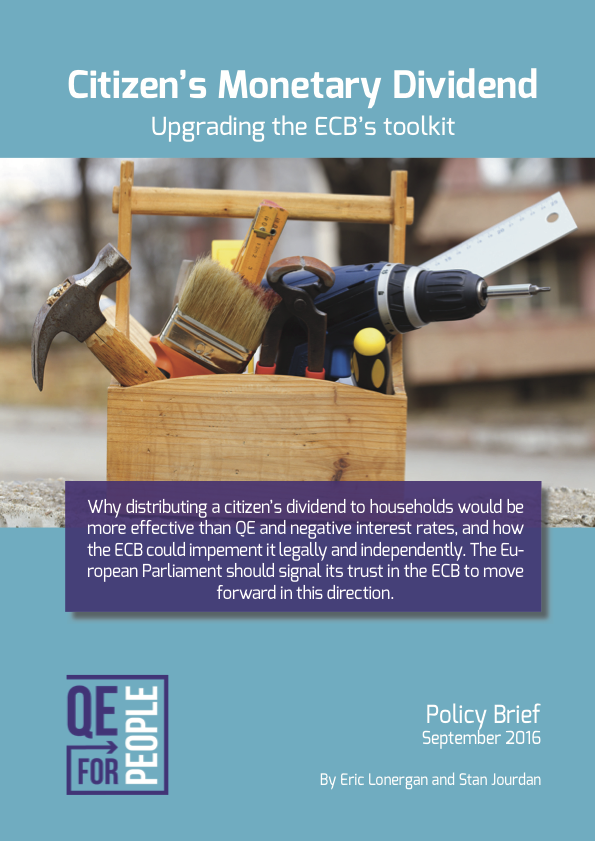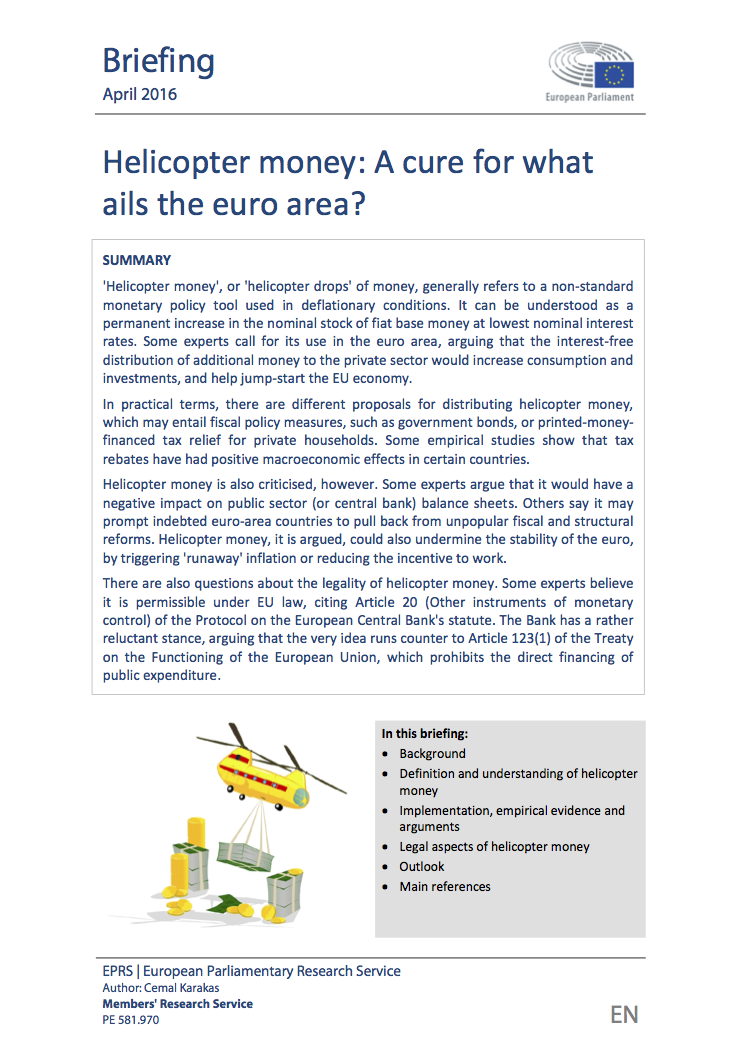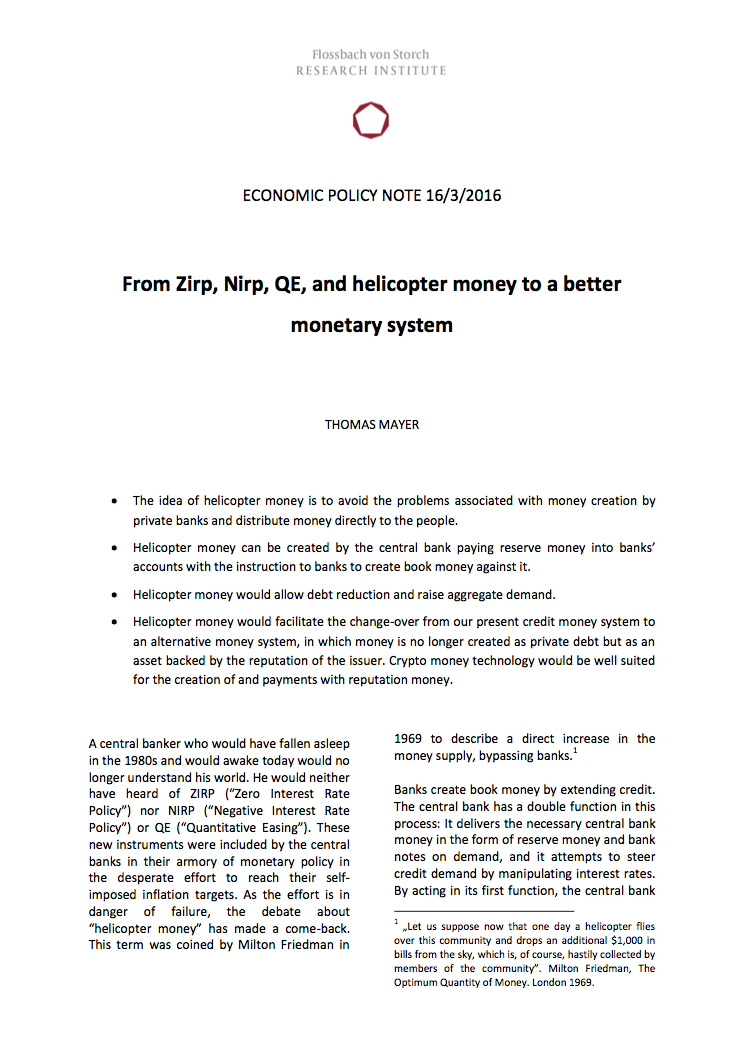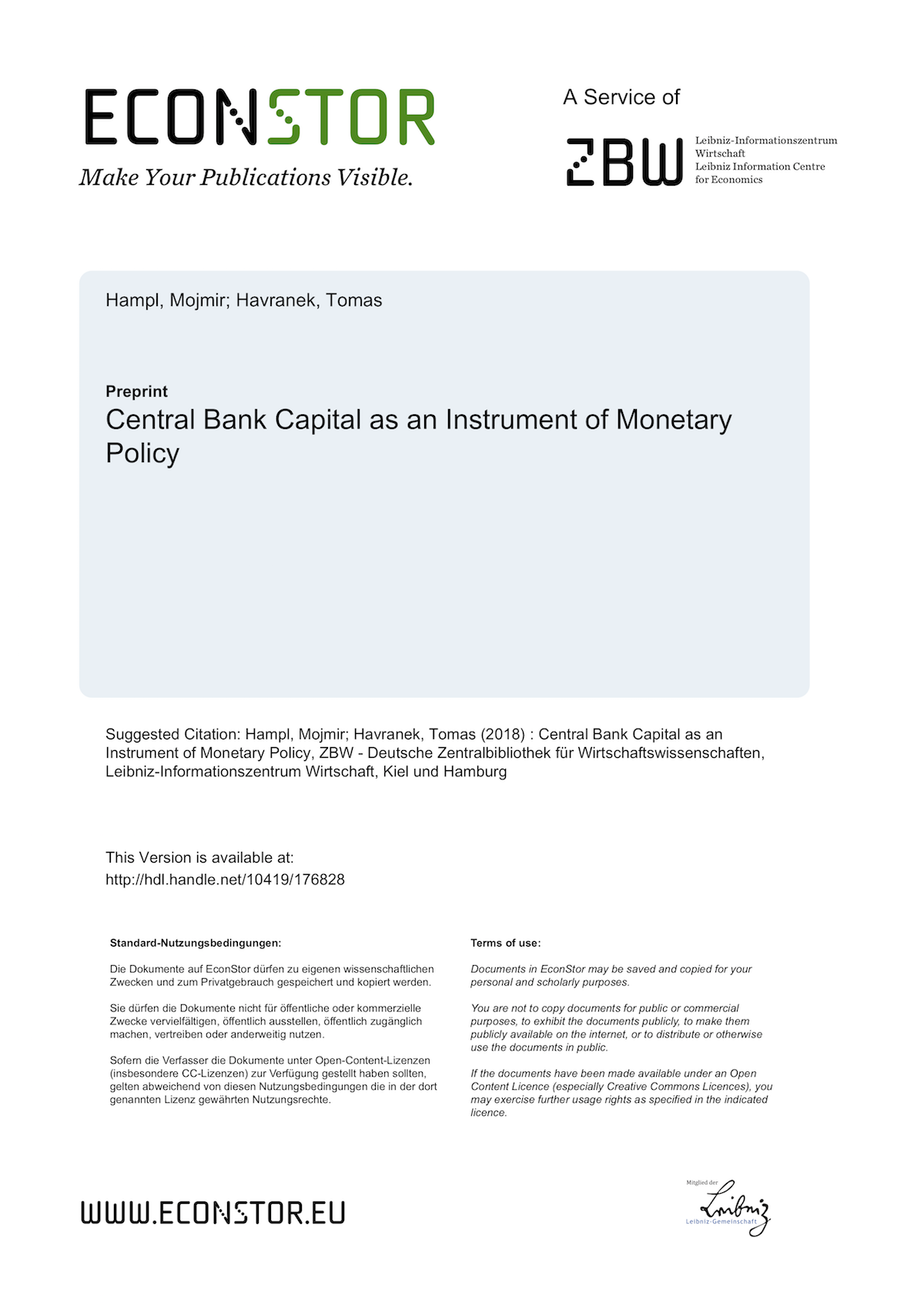Helicopter money

Bailouts for people, not for banks
The Covid-19 pandemic has caused millions of people across Europe to lose their jobs and slashed their incomes. The European Central Bank (ECB) has prioritised multinational companies over ordinary people in their response to the crisis. Helicopter money — direct cash transfers from the ECB to Eurozone citizens — would help build a post-coronavirus economy which puts regular people first.
The coronavirus crisis could trigger an unprecedented recession across Europe. Millions of people have been made unemployed and are being forced into severe debt. The poorest amongst us are becoming even poorer.
Governments and central banks have a duty to respond quickly to any economic crisis, in order to guarantee that the economy does not spiral down into a disastrous long-lasting recession or depression.
It’s time for helicopter money
If the ECB implemented helicopter money now, we could stop Covid-19 causing a severe and long-lasting recession. But the bank is currently rolling out a programme of quantitative easing (QE) instead, providing no-strings-attached funding to banks and companies in a way that exacerbates already high levels of inequality across Europe.
Instead of pumping more money into financial markets, as the ECB is doing with quantitative easing, the bank should deploy helicopter money. It is a policy by which the central bank creates money and sends it directly to members of the public, in the form of unilateral transfers, which do not have to be paid back.
By sending €1,000 to every adult in the Eurozone, the ECB would provide exactly the kind of powerful boost needed to kickstart the economy once the Covid-19 public health crisis is over.
Direct money transfers like this are an immediate and equitable way of boosting private spending when our economy needs it most — without increasing the public and private debt burden. Helicopter money would also negate the need for EU policymakers to subject European countries to another round of misguided austerity after the coronavirus crisis has receded.
The medical emergency may be abating, but the economic emergency is ongoing. Hesitating to act now will dramatically worsen the recession we’ve already been thrown into by the coronavirus.
The European Central Bank must seize the initiative and provide helicopter money to the public immediately, and build a people-centred recovery from Covid-19.
Latest news on helicopter money
Webinar – Helicopter money: The stimulus the eurozone needs? (Video)
A recording of Positive Money Europe’s new webinar on Helicopter Money is now available online.
Helicopter Money will be Spent, Economists Unanimously Find
A review of more than 30 academic papers demonstrate overwhelming evidence that helicopter money will significantly boost the economy.
Interview: ‘We have let central banks fall under the influence of the financial sector’
How can the ECB be reformed to benefit wider society? Positive Money Europe Executive Director Stanislas Jourdan discusses how the central bank can be reconfigured to put people above private banks.
Why does helicopter money work better than quantitative easing?
It goes directly to the economy
Helicopter money is more direct. It stimulates the economy without relying on the financial sector’s transmission mechanism and its effects are therefore quicker to materialize than with QE or negative interest rates.
It can be legally implemented
Helicopter money does not violate the ECB’s monetary financing prohibition because it goes straight to citizens and not to governments. Helicopter money contributes directly to achieving the ECB’s mandate of price stability.
It is democratic and fair
Helicopter money treats all citizens equally, instead of inflating asset prices for the benefit of the happy few.
It is sustainable
Using helicopter money does not entail piling up unsustainable levels of private or public debt. It would, in fact, help with decreasing overall debt levels.
Helicopter money is not a new idea. It has been subject to a lot of academic discussions already, and supported by many economists. Even the former ECB President Mario Draghi said he found the concept “very interesting”!
Through our work with the QE for People campaign, we managed to bring more attention to this idea in the Eurozone and in the European Parliament. The next step is to make the European Parliament and national governments back the idea so that the ECB can use when the next financial crisis hits.
Join the campaign
As a supporter, you’re at the heart of everything we do. We’d love to keep you updated about our exciting work and the ways you can help, including campaigns and events that you might be interested in. We promise never to sell or swap your details and you can change your preferences at any time. To do so, simply call +32 2 880 04 34 or email info@positivemoney.eu
what they say about helicopter money
Further resources
Helicopter Money as a response to the Covid-19 recession (2020)
This report outlines why and how “helicopter money” should be deployed as soon as possible in the Eurozone. It aims to help policymakers carefully prepare for the practical implementation of helicopter money.


